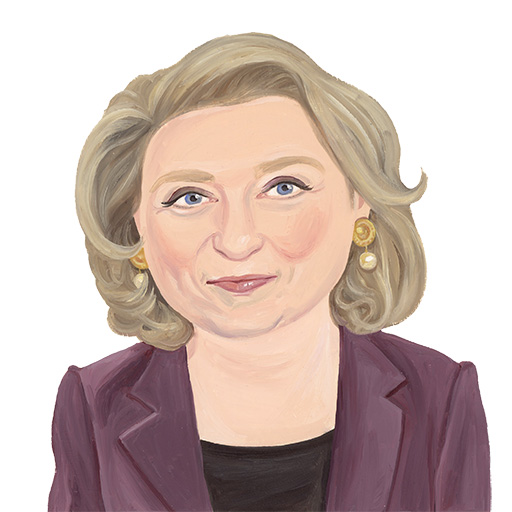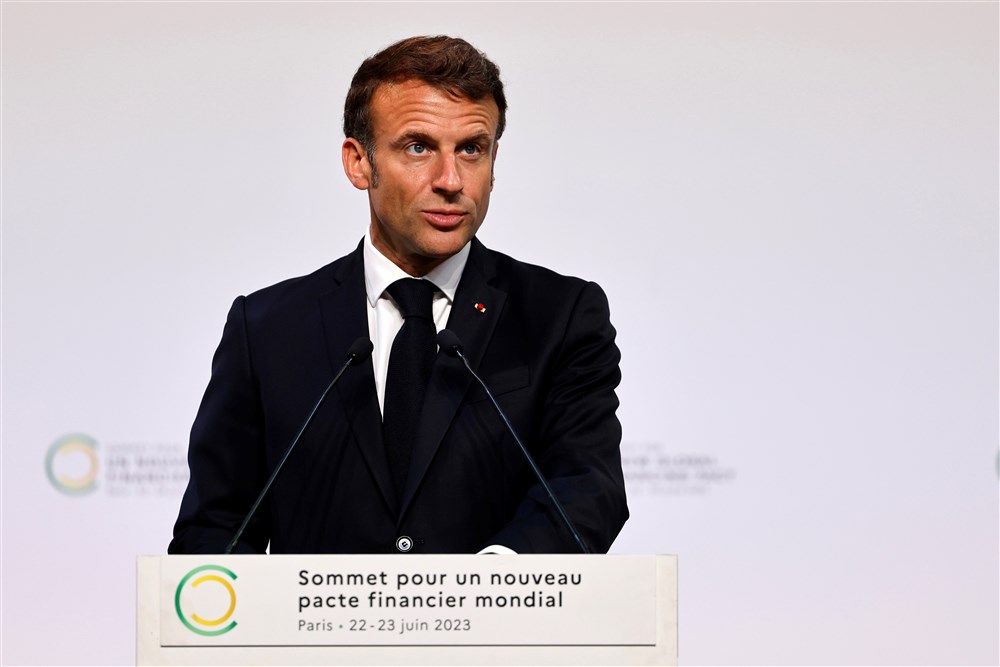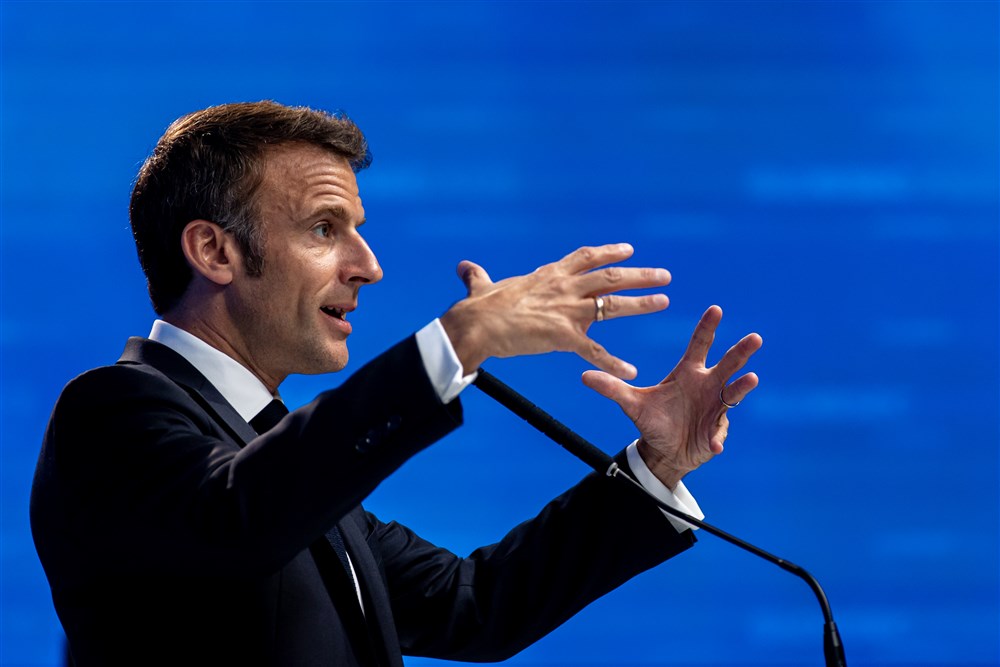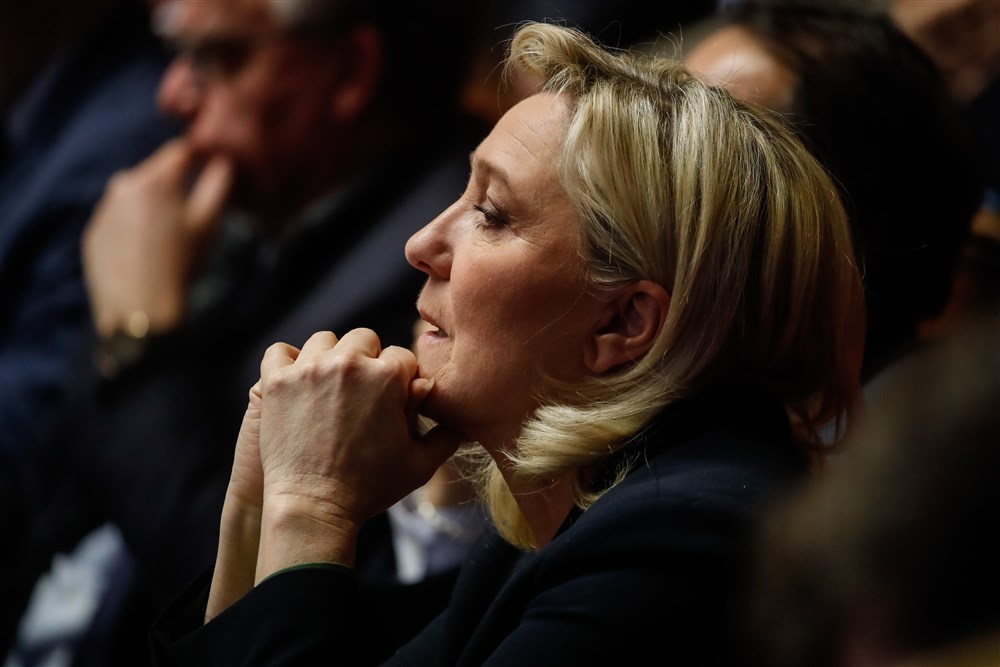They’ve been at it for months. Élysée aides, Quai d’Orsay diplomats, Ministry of Finance mandarins, advisers and a handful of Renaissance MPs — those closest to Emmanuel Macron. All working tirelessly to ensure the success — or at least the attendance of heads of state, governments, central banks, all convened in Paris since yesterday morning — of the Paris Summit on International Finance. This ambitious diplomatic and financial 48-hour jamboree was dreamt up by the French president last autumn, after he attended in rapid succession the UN General Assembly in New York and the COP27 climate summit in Sharm el Sheikh.
The aim? “Reforming Global Finance”, which is no longer “fit for purpose”. Emmanuel Macron has dreamt up a “rebalancing” that will “give a voice to the global South”, especially on the issue where it suffers from crises created by the developed countries, namely climate change.
Macron wants to “create a new Bretton Woods”, in homage to the conference held between representatives of 44 Allied nations in a small New Hampshire resort in the first three weeks of July, 1944. One year before final victory in 1945, the Bretton Woods conference came up with the architecture for the financial institutions of the post-war world: the International Monetary Fund, and the International Bank for Reconstruction and Development (soon to become the World Bank). The meeting established the principles of an orderly foreign exchange system — and thus the foundations of a stable post-war Western world.
There’s no little hubris in framing yourself as the successor to John Maynard Keynes, Henry Morgenthau Jr, and Pierre Mendès-France, but that characteristic is not lacking in France’s president. Comfortably re-elected last year because his opponent was Marine Le Pen, Emmanuel Macron didn’t manage, just two months later, to win a majority in the National Assembly.
That was a hint, if he had bothered to take it — that post-Covid and post-Yellow Vests revolt — the untroubled times of his first months in power were definitely over. The brash young ingénue had failed to make traditional politics obsolete.
The President has lost his taste for the nitty-gritty of ruling the fractious French. “He believes his role now belongs on the world stage,” an unnamed aide told the respected French newsmagazine Le Point.
For the pundit Guillaume Tabard, this is about “both French and Macron pride”. Tabard points out the succession of similar grandiose summits, from the Peace Summit for Ukraine, to the One Ocean Summits in 2022 and 2023. Both Tabard and the Le Point reporters mention insiders convinced that Emmanuel Macron, inspired by Barack Obama’s example, is dreaming of the Nobel Peace Prize.
That countries which did not yet exist in 1944 would like to be considered with more criteria than just GDP per capita when financing facilities are granted by the World Bank is reasonable. It’s doubtful, however, whether the kind of grandiose talking shop dreamt up in Paris is the most effective way of getting there.
Macron’s Special Outreach minister, the Greek-born former gynaecologist Chrysoula Zacharopoulou, picked out for her “empathy” and “charisma” more than for her diplomatic expertise, was fast-tracked into diplomacy because the president mistrusts the Quai d’Orsay, the French Foreign Office. He has actually abolished the specific diplomatic track in the French administrative hierarchy; now anyone can be appointed to any job in the Foreign service, however specialised.
Besides racking up brownie points among the international crowd, Macron’s showy outburst of diplomacy has more specific, if less trumpeted, aims. One is regaining some of the French influence lost in Africa in the last decade (mostly to the Chinese and to the Russians) under the lackadaisical presidency of one Macron, E. (Lecturing African presidents in public is not the way to make friends and influence people — on any continent.)
The other is to play up to voters at home, bigging up le prestige de la France (which matters more than you’d think) and not-so-discreetly pinging the anti-American, mock-Gaullist tropes that always lurk close to the surface of French public debate.
His initiative may well earn him a bit of respect among public intellectuals on the hard right and the hard left. The rest of the nation would rather see food prices drop, the pensions reform cancelled, and public services perform better. That is unlikely to happen soon.
The Paris Global Finance Reform Summit will soon be forgotten, and the French will keep disappointing a President who’d rather dissolve his people and elect another one.






Is Macron just being a Gaullist?